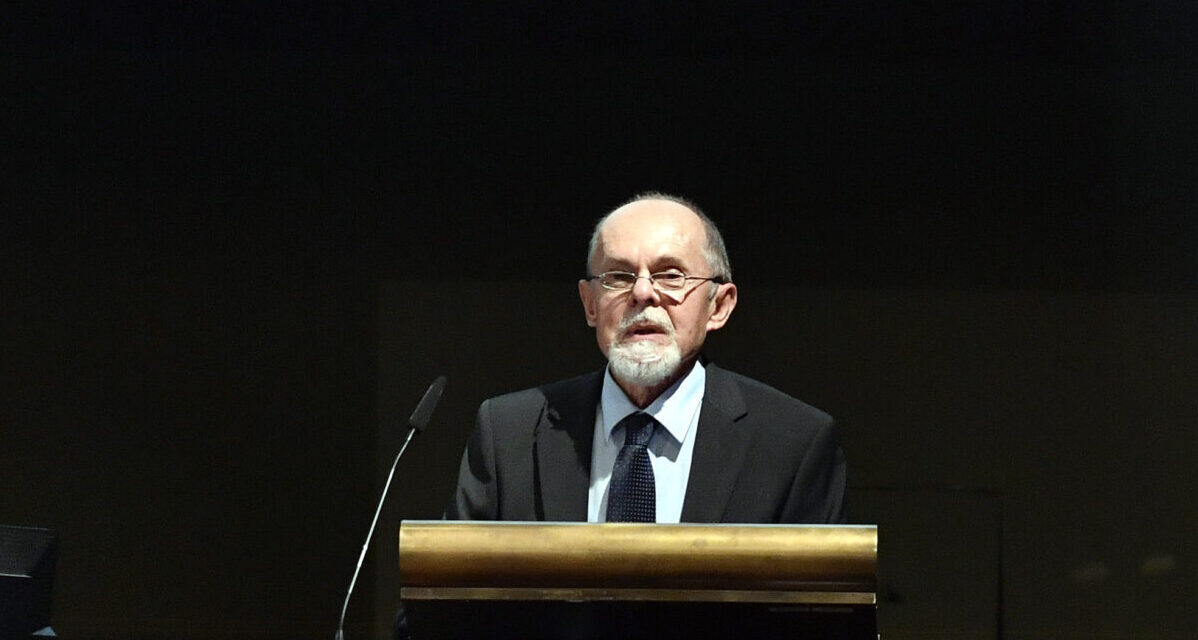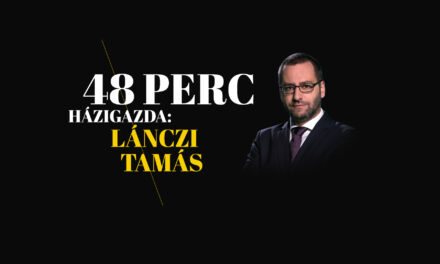Viktor Orbán may have a prominent role because a hidden global grand coalition is being organized behind him, for which he has become the most suitable "spokesman". Written by László Bogár.
It is a cliché, but it is still true that starting a war is very easy, but ending it is very difficult. Evidently, Viktor Orbán is also experiencing the weight of this recently, as he apparently strives with enormous energy and ambitions to understand the dynamics of war and peace and, based on this, the chances of peace. But the world we live in is a world of permanent global war of narratives, where gigantic media machines ("reality factories") are capable of producing any reality they want, and can store even hundreds of millions of people in the cage of these false realities. And since the interpretive framework of war and peace and the set of concepts used to describe it also fall into this trap, so
whoever wants to free the world from this trap takes on a great deal of work.
It would be worthwhile for us to ponder what, in addition to the Hungarian Prime Minister's personal abilities, makes him suitable for assuming this role, and whether there is any chance at all of changing the global power determinations that generate war.
Let's start with this last connection, since the most fundamental question of the chance of peace is obviously whether the world can be freed from the captivity of the false ruling narrative that tells the causes of war, and whether Viktor Orbán or anyone else is capable of accomplishing this task.
Since the real reason for the war is that the American global empire was only able to explode the emerging Eurasian cooperation system between Europe, Russia and China by provoking a war, so from the point of view of the global empire currently ruling the world, this war was inevitable.
It was inevitable because the increasingly obvious strengthening of this Eurasian cooperation system with China's dominance would have further eroded the influence of the American empire as a world power. By starting the war, he hoped not only to eliminate the possibility of peaceful cooperation between the three power centers based on mutual benefits, but also to weaken all of them (who are potential rivals) and even push Russia back in the era of Yeltsin's promise of unlimited plunder, which is increasingly a resource -could have been literally vital to the struggling American empire.
Over the past two and a half years, the strategy of the American empire has partially worked, Europe and Germany within it have been catastrophically weakened, and the American empire has become a vulnerable vassal.
Russia has also been weakened, and this war provoked by the American empire, no matter how it will end, will have a historical deficit for it as a whole, but it managed to prevent its plunder from being pushed back to Yeltsin's level.
China, on the other hand, is much more the winner of this war, because it increased its chances of becoming the main advocate of the world's non-Western majority against the global domination of the American empire. Not to mention, or very much so, that Russia's dependence on China is growing, if slowly, but constantly, and this will be of extreme strategic importance for China in the future.
Since the war no longer offers an additional option for the American empire, it tries to get out of it, but it has no objection (why would it?) to the mentally degenerating European ruling elites continuing this war that serves American imperial interests "for free" and thus themselves more and more brutal looting and sacrifice of their resources.
For Viktor Orbán, the Hungarian EU presidency, which lasts until the end of the year, opened up a very exceptional "window of time".
The US presidential election will take place this semester, in which an increasingly absurd situation is beginning to emerge, and this could encourage Europe even more to recognize and take advantage of this imperial "break in history" to back out of the suicidal dead end it has been following until now. Even more so, because if Donald Trump really wins, then the war will end, if not in a single day, but with the division of Ukraine in a very short time.
But in addition to Viktor Orbán's personal knowledge, courage and determination, there is another factor that makes him suitable for this role.
And this is that the "empire selecting power" representing the third level of world power, with the Tucker Carlson interview, elevated the Hungarian Prime Minister into that segment of the global discourse, where only very few people have access.
With this, he presumably acknowledges the achievements that he has achieved in part with his local grand coalition that has been operating for 14 years (with the elections won with a two-thirds majority) and his even more important global grand coalition.
Viktor Orbán may have an almost inexplicably privileged role compared to countries with influence similar to Hungary's, because a hidden global grand coalition is being organized behind him, for which he has become the most suitable "spokesman".
But the extreme difficulty, danger, and risks of this role are given by the fact that apparently tectonic clashes are taking place within the American imperial elites, also at the level of the "empire selecting power" above it, and as a result, by implication, in the increasingly confused and tense system of relations between these two levels.
Historically, these conflicts can even lead to a permanent "hundred-year" war, but also to a hitherto unknown global settlement system, which in turn can bring "hundred-year" peace to the world. Viktor Orbán now has an exceptional chance to influence this.













